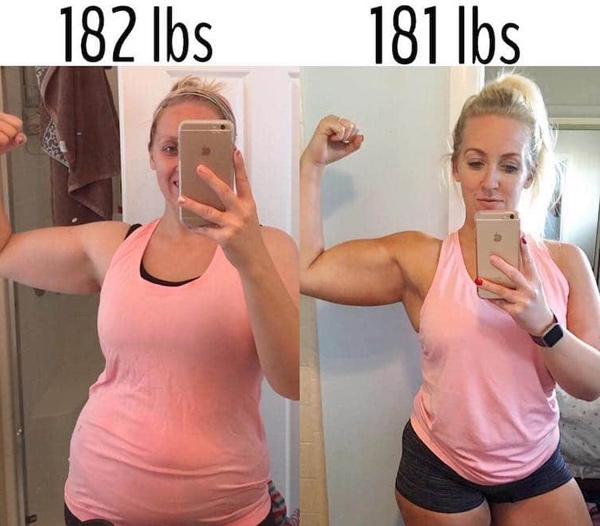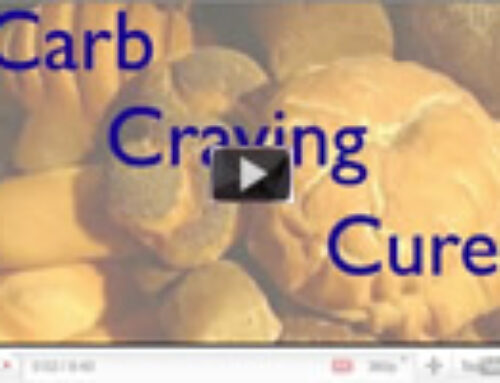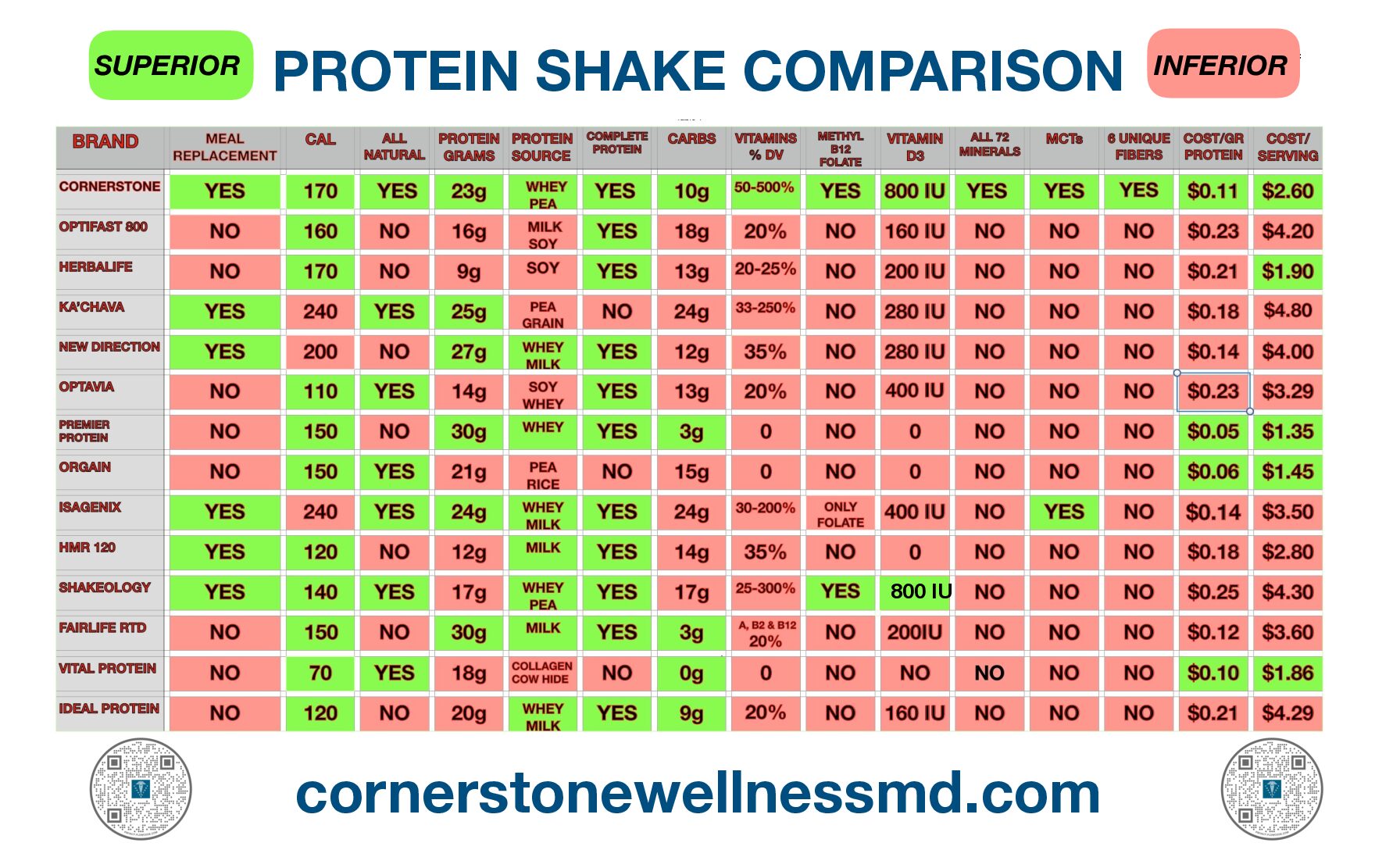Protein and Medical Weight Loss (Part 1)
The goal of medical weight loss typically is weight loss but the goal of CornerstoneWellness is FAT LOSS and MUSCLE MAINTENANCE. It is excess body fat (not weight) that leads to hypertension, lipid abnormalities, diabetes and heart disease. Losing body fat is relatively straight forward- eat more protein, less carbohydrates and burn more calories with exercise. However, as is so often the case, the devil is in the details.

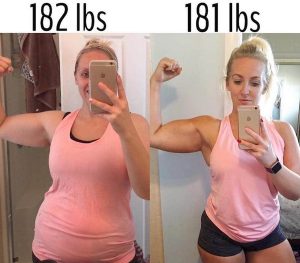 Why is protein so important for fat loss and muscle maintenance.
Why is protein so important for fat loss and muscle maintenance.
- Protein blocks hunger (satiety) through numerous physiologic and neural pathways
- Protein causes muscle growth
- Protein prevents the muscle loss (catabolism associated with calorie restriction dieting)
- Muscle maintains basal metabolic rate, the rate at which you burn calories at rest
- Ingesting protein, independent of muscle growth, increases metabolic rate
- Protein decreases carb craving by decreasing insulin levels
How much protein will you have to eat to accomplish these changes and improvements?
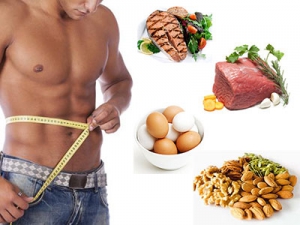
Well, that depends on how much muscle you have on your frame. This can easily be determined if you are seeing a medical weight loss physician that is utilizing the Cornerstone Wellness program. The doctor or his wellness coach will simply test you on the Cornerstone BC IV body-composition analyzer and in 6 seconds you will see your muscle mass in lbs as well as your body fat % and it also determines your basal metabolic rate. Any increase in dietary protein will help towards reaching your goals but optimally you will want to consume one gram of protein for every lb of lean body mass. So if you are a woman, 5’4″, 160 lbs with 105 lbs of lean body mass (LBM) you will would want to eat about 105 grams of protein throughout the day.
Now, this is a lot of protein, especially compared to what you have been eating up till now. You have probably been eating on average about half that much protein if you are that height and weight. The challnege is that we want you to increase your protein significantly but NOT increase your total calorie intake.
What is the best way to do this? That is covered in the next blog section Protein and Medical Weight Loss (Part 2) by Jonathan Burg MD.

